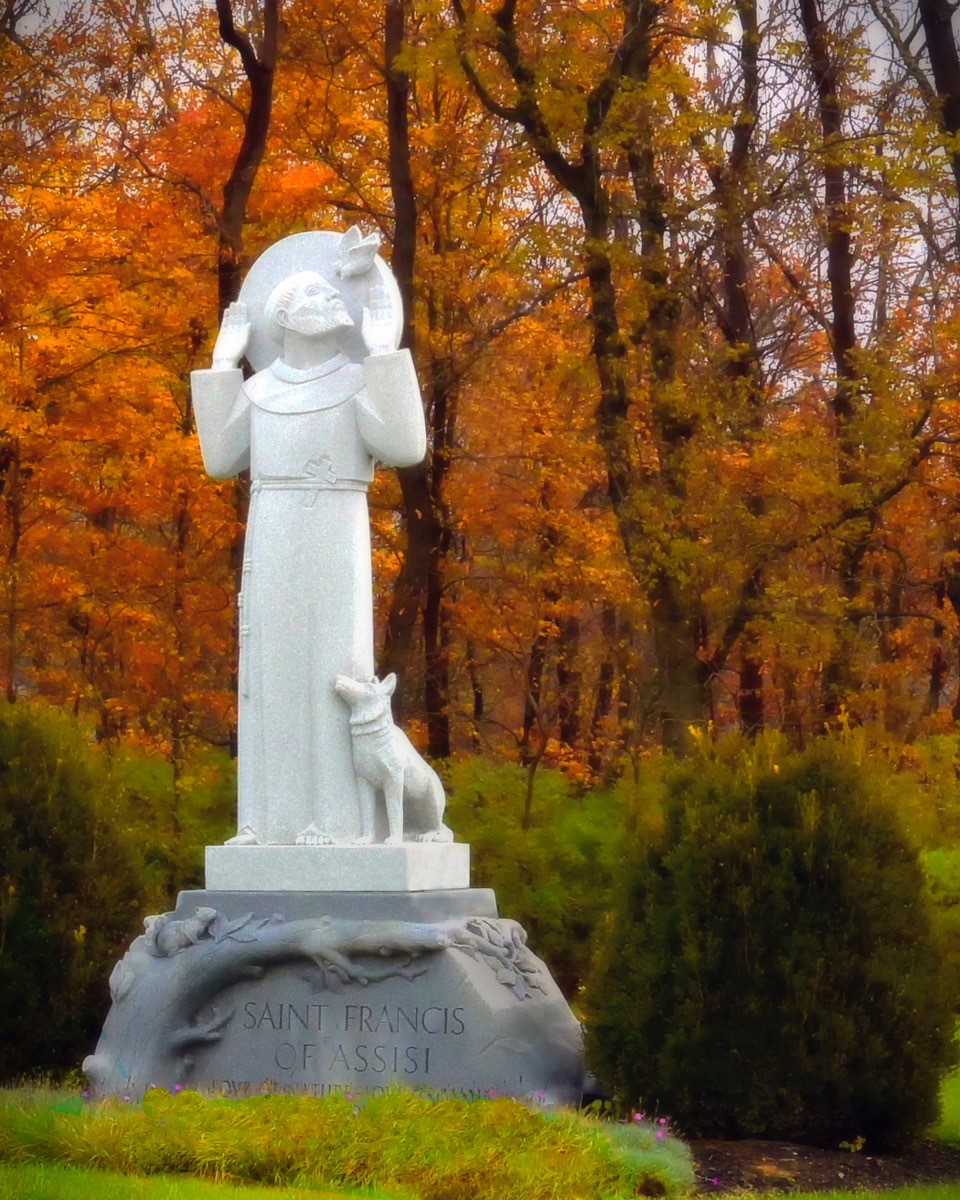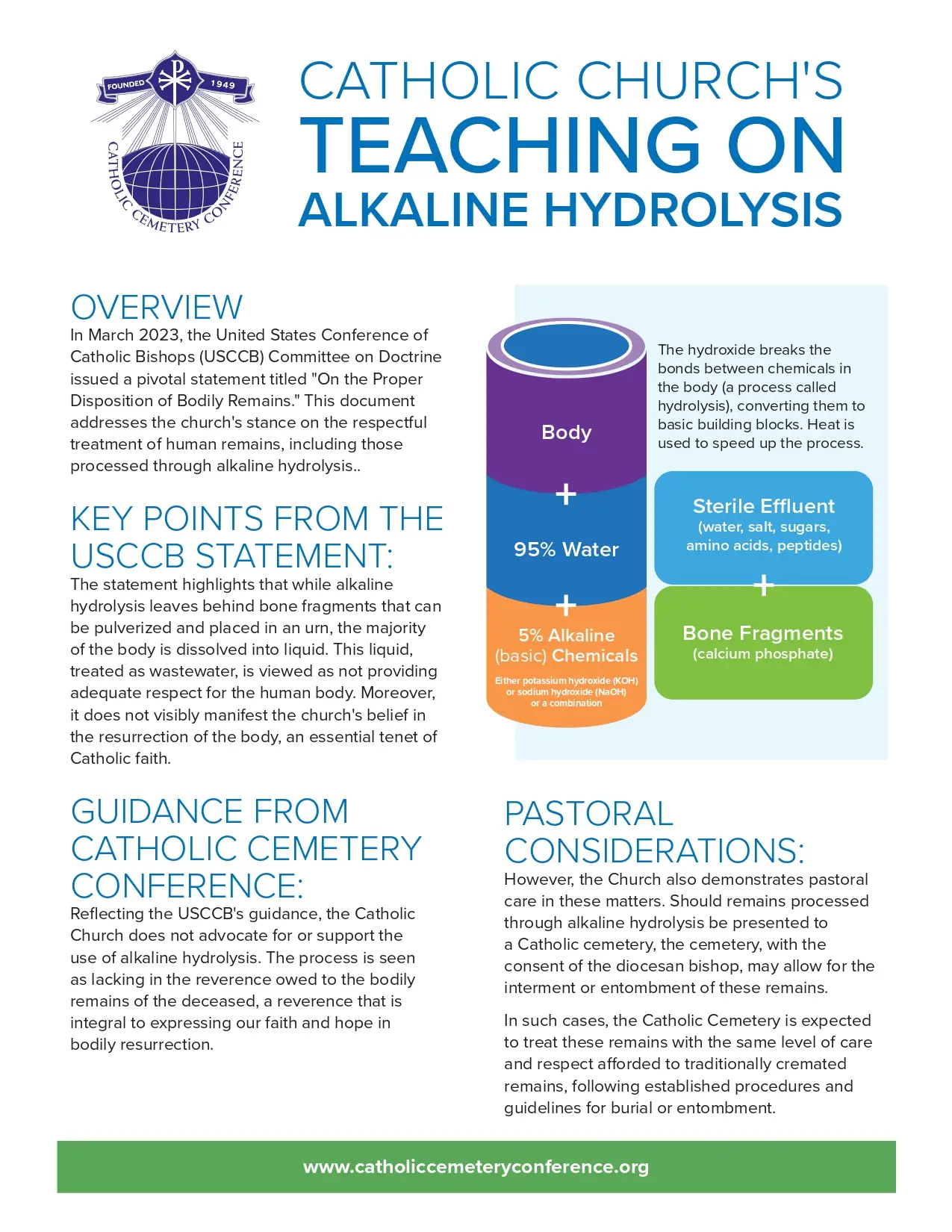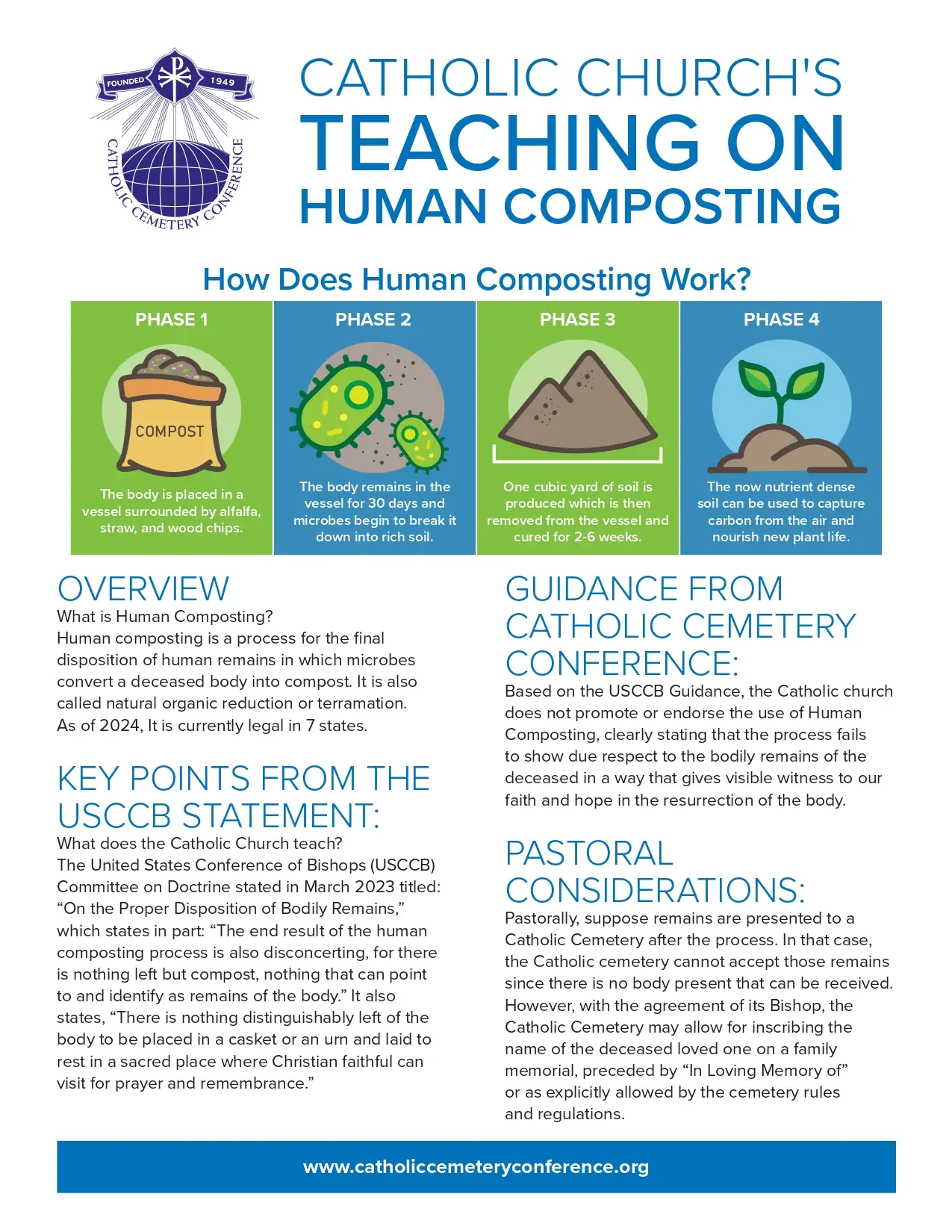
Why Choose a Catholic Cemetery?
The Catholic Church professes the belief in the resurrection of the dead and affirming that the human body is an essential part of one’s identity. Our bodies are a gift from God and even in death; the body is to be treated with respect and reverence and is to be laid to rest in consecrated ground, a Catholic Cemetery.
Three-Part Journey of Christian burial
The Three Sacred Teachings
Why a Catholic Funeral, Part 1
Why a Catholic Funeral, Part 2
What is the Church’s View on Cremation?
“Ad resugendum cum Christo” (“To Rise with Christ”) These are the words used by Pope Francis after consultation with other Vatican offices regarding the burial of ashes of those cremated.
Cremation was accepted by the Catholic Church in 1963 when, during the Second Vatican Council, an instruction permitting cremation as long as it was not done as a sign of denial of the basic Christian belief in the resurrection of the dead. “Belief in the resurrection of the flesh is fundamental. A human body is not trash and an anonymous burial or scattering of ashes is not compatible with the Christian faith”, as stated by Cardinal Mueller in October of 2016. Placing an urn in a tomb or buried within a Catholic cemetery is an expression of belief in the “communion of saints,” the unending unity in Christ of all baptized, living and dead. Keeping ashes on the mantel, states Cardinal Mueller, is a sign not only of love and grief, but also of not understanding how the loved one belonged to the entire community of faith and not just to his of her closest relatives. Placing the cremated remains in a sacred place, a Catholic cemetery prevents the faithful departed from being forgotten or the remains from being shown a lack of reverence and respect, which is more likely to happen as time goes on and those closest to the deceased also pass away. (Instruction from Pope Francis, October 2016).
Catholic Church’s Teaching on Alkaline Hydrolysis
This document addresses the church’s stance on the respectful treatment of human remains, including those processed through alkaline hydrolysis.
Read more information down below or click here to download the document.
Catholic Church’s Teaching on Human Composting
Human composting is a process for the final disposition of human remains in which microbes convert a deceased body into compost.
Read more information down below or click here to download the document.

